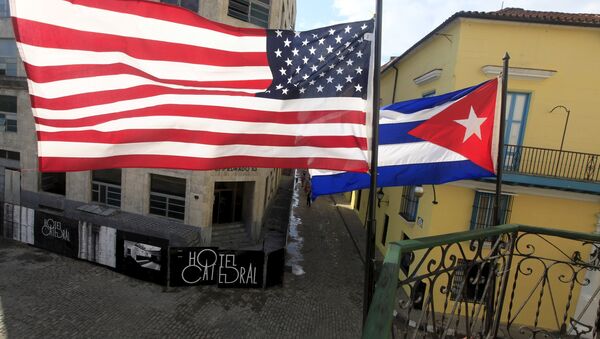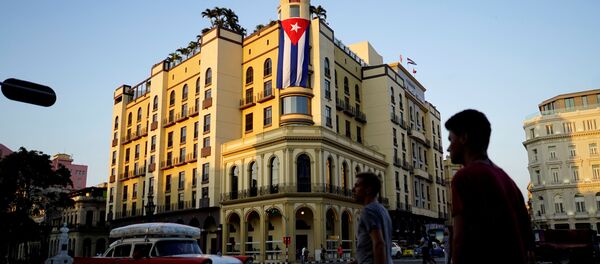Sputnik: Could the law which allows lawsuits in US courts over property seized by Cuba seriously affect the Cuban economy and prevent or deter foreign businesses from further investment there?
Sputnik: Speaking about the Cuban-American immigrant groups, what role did they play in pursuing this Trump administration decision regarding Cuba? What kind of mechanism do they have to influence the United States' current administration?
Professor José Gabilondo: That's a very interesting question, because in the United States there are two minority groups that have acquired disproportional influence in US foreign policy. One group is Jewish Americans with respect to their influence in Israel policy, and the second group is Cuban-Americans. Cuban-Americans are a very small number of people, but they have a disproportionate political influence, because they have a lot of very able congressmen and women, so they do it through the electoral process, the Congress. As you probably know, Cuban-Americans are concentrated in Florida. Florida is very important state electorally, so that's part of how they do it.
Sputnik: And speaking about Canadian and European businesses which can be affected by this decision, what kind of measures could they take? Could they challenge this decision in WTO or other international organisations? How would they respond?
Professor José Gabilondo: I can't tell you what will happen in the WTO. But there will be legal challenges. The European Union has threatened to expropriate the property of US businesses, I don't think they will do that, I think that's an idle threat. I think the truth is they are powerless, they can't really do very much. I think that they really can't do very much and there may be some legal challenges, but I don't know if they really stand the chance of prospering. There isn't any question, the president does have the power to do this. There are other sanctions like the Helms- Burton Act that has other parts whose constitutionality is uncertain, but I don't think this is one of them, I think the president is on solid ground.
READ MORE: 'US Using Cuba Case to Push Further Their Interest More Globally' — Scholar
Professor José Gabilondo: It's true, the objective of the US in Cuba has been regime change for decades, and that changed during the Obama period. Obama really stepped back and so that was very significant. But it's true, this is a strategy of regime change, but it's a very unpredictable strategy, because it's not clear, I don't think anyone expected that this would happen, because it's so unpredictable, because no one knows what will happen. Most leaders are risk-averse, they don't want to take those kind of risks. But Donald Trump has a different attitude about risk, he doesn't follow the conventional rules of self-restraint.
Sputnik: Do you think this move by the Trump administration will empower some kind of a tough or conservative wing of the Cuban government? Do you think they will be more against the United States and against Europe and any political reform, or that the conservative wing will win in Cuba after this?
Professor José Gabilondo: I think, unfortunately, actions like this do make it much easier for reactionary forces to be influential in Cuba, they really do, I think there's no denying that. Title III, I think, is the most significant of the sanctions, but US could also limit the amount of remittances Cubans can send to families, and those things are going to take away foreign exchange. Cuban-Americans are a huge source of foreign exchange for Cuba, so those things will make it worse. Title III will affect foreign investment, but the other measures will affect short-term liquidity.
READ MORE: Russia Vows to Resist New 'Illegitimate' US Sanctions on Venezuela, Cuba
Sputnik: Could other foreign investors like Russia and China replace Canadian or European businesses if they decide to pull out of Cuba?
Professor José Gabilondo: Well that's certainly what China has done in Latin America and in Africa. They have this pattern of helping to finance infrastructure and leaving those countries very indebted. That's a possibility, but I think the two countries that are at greatest risk are Spain and Canada, because those are the two countries that have the most investments in Cuba, so I think they're the ones that will be most damaged.
The views expressed in this article are those of the speaker and do not necessarily reflect those of Sputnik.



